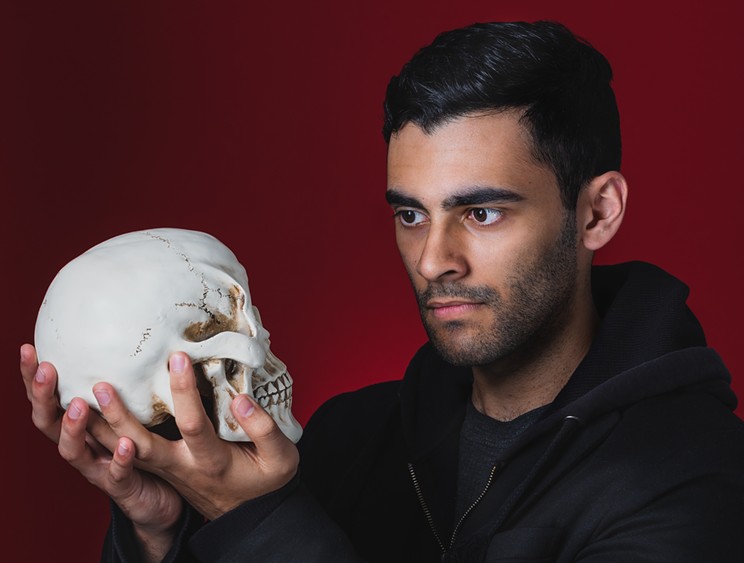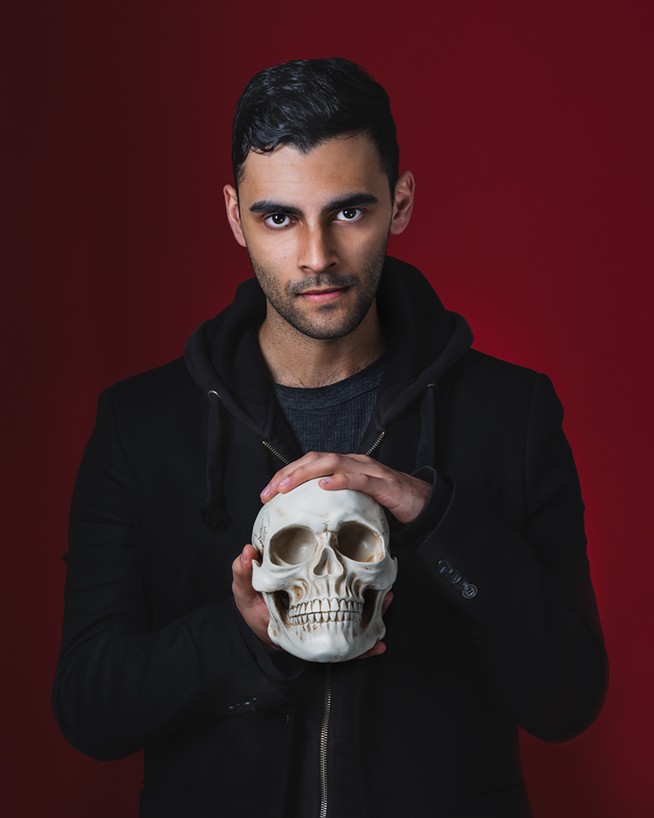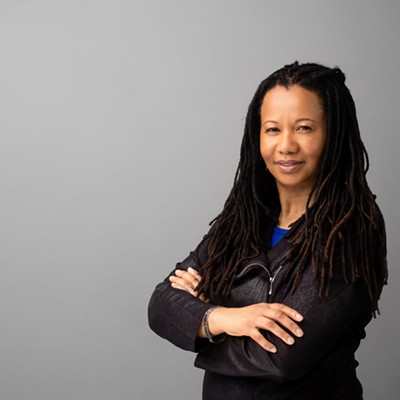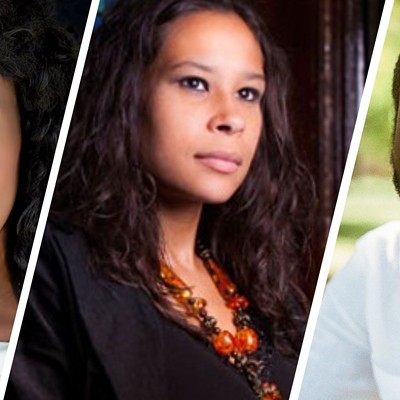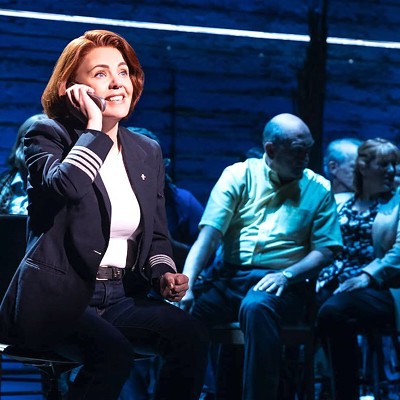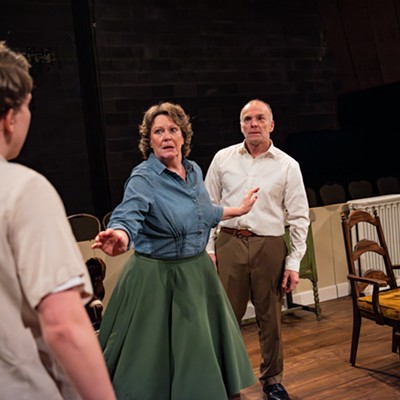It’s hours before opening night of Shakespeare By The Sea’s Hamlet, the first drama the venerable theatre has staged since pre-pandemic times (and which will run until September 3 at Point Pleasant Park). When The Coast reaches Deivan Steele (who’ll be playing Hamlet himself) by phone, the actor is equal parts excitement and nerves, celebrating the end of rehearsals with his castmates over doughnuts. “A lot of Hamlets find that opening night is kind of like a blur: Like you black out and at the end of the night, you’re like Oh, I guess I must have just done the show, but I don't remember any of it. So, all I want to do is enjoy the present moment and remember some of it as I'm up there,” Steele says with a laugh.
His first leading role with SBTS, Steele says the chance to bring Hamlet to a modern audience with a diverse cast (Steele is a person of colour and many of his castmates identify as 2SLGBTQ+) is the type of career high point he’s long worked towards: “If I can inspire someone to take up storytelling, to take up this mantle—and I really do think it is a noble pursuit because it's hard, and it's difficult and full of obstacles to be an actor, especially in this country—if I can inspire one person to do that, to tell a story that inspires someone further, then I'm happy.”
We asked Steele about how it feels to take on such a storied role, how Shakespeare continues to remain relevant, and about the benefits of diversity onstage:
The Coast: In some ways, it’d be easy to call Hamlet the original bad boy or the original fuckboi—especially considering how he treated Ophelia. How does it feel to play a character with such a villainous streak?
Deivan Steele: I think what's so important when you're playing any character, is to not make value judgments about them. To me, that’s the first step in reading and learning about a role, and so I try not to do that with Hamlet either, and to really see both sides of every scene that he’s in. And I think that's what’s so unique to him and what he does so well: He really can think of ‘to be or not to be.’ It’s that ability to see two sides of every story that makes him so unique in his language.
Zooming out a bit: How does it feel to play such a storied character in general? How do you approach a role that’s been performed untold thousands of times?
For us, it is about thinking of the play as a new play: Getting rid of the ghosts of the hundreds of millions of performances that have been done in the past and thinking about how our voices speak to it. That's all we can do. That is all you can do as a Shakespeare play anymore: Bring yourself to it, because everything else has already been done. It’s like Oscar Wilde says: ‘The only person you can be is yourself. Everyone else is taken.’
That's true of Shakespeare's plays. So we just tried to bring our own words into it—and that is the only thing that makes it different or special. And we just hope that will speak to people who come and see it.
It feels like a cliche question, but still worth exploring: What is the enduring appeal of Shakespeare in the modern day?
I think there really is only one appeal to Shakespeare and it’s the words. We all know that the plots are stolen, generally. Or sometimes they’re paper-thin. The characters are sometimes inconsistent. Shakespeare was bad at geography. He was bad at continuity.
It’s not the plot of Hamlet that people remember. It’s the large ideas about life. About love. About death. That’s what still speaks to people. And that's what we want people to hear. If we have done that, if you heard Shakespeare and heard some of that poetry, we’ve done our job.
You mentioned how the diverse cast makes Shakespeare By The Sea’s current version of Hamlet even more special. Can you expand on that?
It's wonderful having a diversity of people. It makes every play better: Diversity of experience, diversity of culture. That’s our strength—and will continue to be theatre’s strength: If theatre doesn’t have a diversity of storytelling, then we're limiting what we can learn. We're limiting stories’ power. So having people of colour, having queer people: Those are great gifts. And having their stories present helps all of us tell a story better, in new ways. Ways that people can hopefully see themselves in—and that's what we want.
It often feels like there’s some folks who don’t engage with Shakespeare because they hated reading it in school or they feel like they’re not smart enough to ‘get it.’ What would you say to those who feel that way?
Anyone who sees it today is more educated than 99 percent of Shakespeare’s audience ever was, just by virtue of being able to read. [Laughs] You have to see the plays in action. They’re stories not meant to be read but meant to be experienced. I promise, this is the setting where you can see the story. It’s action-packed, exciting, difficult, dangerous: Everything that we have in our best action film. So, I think you need to give it a chance and see it in person.

